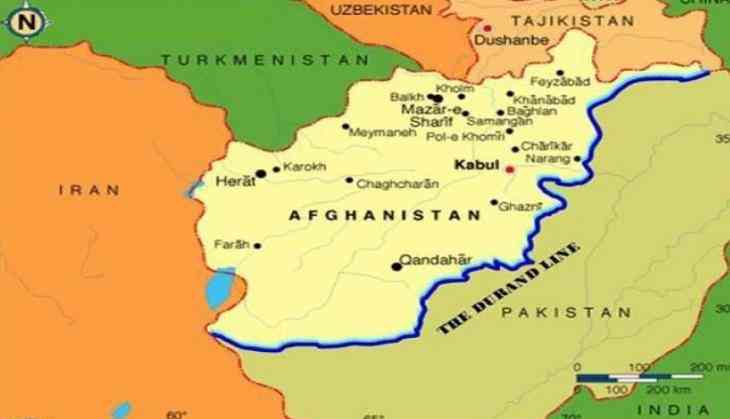
Frontiers by nature are contentious and divisive lines, and often acquire a prominence because of their bloodstained history, and in this regard, the imaginary Durand Line that separates Pakistan and Afghanistan, has managed to generate its share of legal, territorial, socio-economic, ethnographic, military and geo-political problems, says a study.
According to the European Foundation for South Asian Studies (EFSAS), which is based in Amsterdam, The Netherlands, the Durand Line embodies a description made by former British Indian Viceroy Lord Curzon of Kedleston during a lecture delivered at Oxford in 1907. He said: "Frontiers are the chief anxiety of nearly every foreign office in the civilised world... They are moreover the razor's edge on which hang suspended the modern issues of war or peace, of life or death to nations."
In its research study, the EFSAS says that the Durand Line since its creation has been a scene of conflict not just limited to various state and non-state actors, but many others.
" (It) does not involve merely the Governments of Pakistan and Afghanistan as the only two adversarial forces. There are many parties involved: the ISI, the Pakistani Army, the tribesmen, the local notables, the insurgents, the terrorist outfits and the organised crime groups. There are smugglers and business interests at stake as well, which should further pinpoint the desire of the international community to resolve the dispute and establish a legitimate profit-making trade route," the research paper says.
Referring specifically to the importance of this boundary to Pakistan and Afghanistan, the EFSAS study says that current geo-political realities demand a more pragmatic approach.
It says that the Durand Line has estranged both Islamabad and Kabul almost to the point of no return, and adds that it has exacerbated a "sense of insecurity and incompleteness, while generating many complex identity issues in relation to the local Pashtun people, who have been left voiceless and stateless."
Political tensions have remained high and manifested itself through border skirmishes, wars, acts of terrorism and the destruction of lives and property in both countries.
It says that both Pakistan and Afghanistan need to cooperate to ensure an effective border settlement rather than undermining each other, which only benefits terrorists and organised crime groups operating in the region.
The EFSAS study warns and cautions that if both continue using strategies based on animosity and rivalry, repugnance and volatility will continue to plague the region, and this will only be to the advantage of trans-national militant networks.
The study comes forward with a couple of solutions to ensure peace along this imaginary boundary line.
One solution, which this paper puts forward, is about the possibility of having an open border between the two countries, which will benefit the entire region.
"Such a border would clarify that all Pashtuns have rights as citizens of whichever state they choose, and would enable them to communicate, trade, and develop both their economy and their culture in cooperation with one another, "says the EFSAS study.
Secondly, such accord would finally provide Afghanistan with access to the sea, as well as facilitate Pakistan's connection with Central Asia.
Third, this accord could and would lessen ethnic tensions between both countries as long as they agree to putting an end to all hostilities and their on again-off-again adversarial relationship.
Fourth and a major key for strategic success would be to disrupt operations of terrorist and militant outfits with support from state actors like Pakistan and its intelligence agencies.
It must be understood that values of peace, protection of human rights and security are internal to the normative structure of international affairs, and this can happen only through a comprehensive dialogue, when and where parties agree to exist peacefully with each other rather than continue to be engaged in conflict.
Rational calculation demands that a resolution to the Durand Line dispute is fundamental to the War on Terror.
The EFSAS study concludes that the existence of safe havens for the Taliban around the border, threatens international peace and security. The international community must review the current Pak-Afghan border and facilitate the processes of reconciliation; otherwise, the region faces the risk of escalating into a dangerous flashpoint.
The study does not accept that fencing of the border is a solution, as it believes that such a move could further isolate people living around the border socio-economically.
It calls for ending the 19th century regime in the tribal areas to facilitate the creation of a 21st century border settlement.
With Pashtun nationalists calling for fast-paced economic development and reforms in FATA, it is high time for these two countries in Asia to resort to rational calculated dialogue and decision-making process rather than warfare on the boundary outlined by Sir Mortimer Durand in 1893.
The two countries must formulate guidelines for promoting the peaceful and prosperous future of the region, collaborate on counteracting the violent non-state and state actors operating at the border and aim on safeguarding the interests of the local population in order to reach a comprehensive settlement.
-ANI


